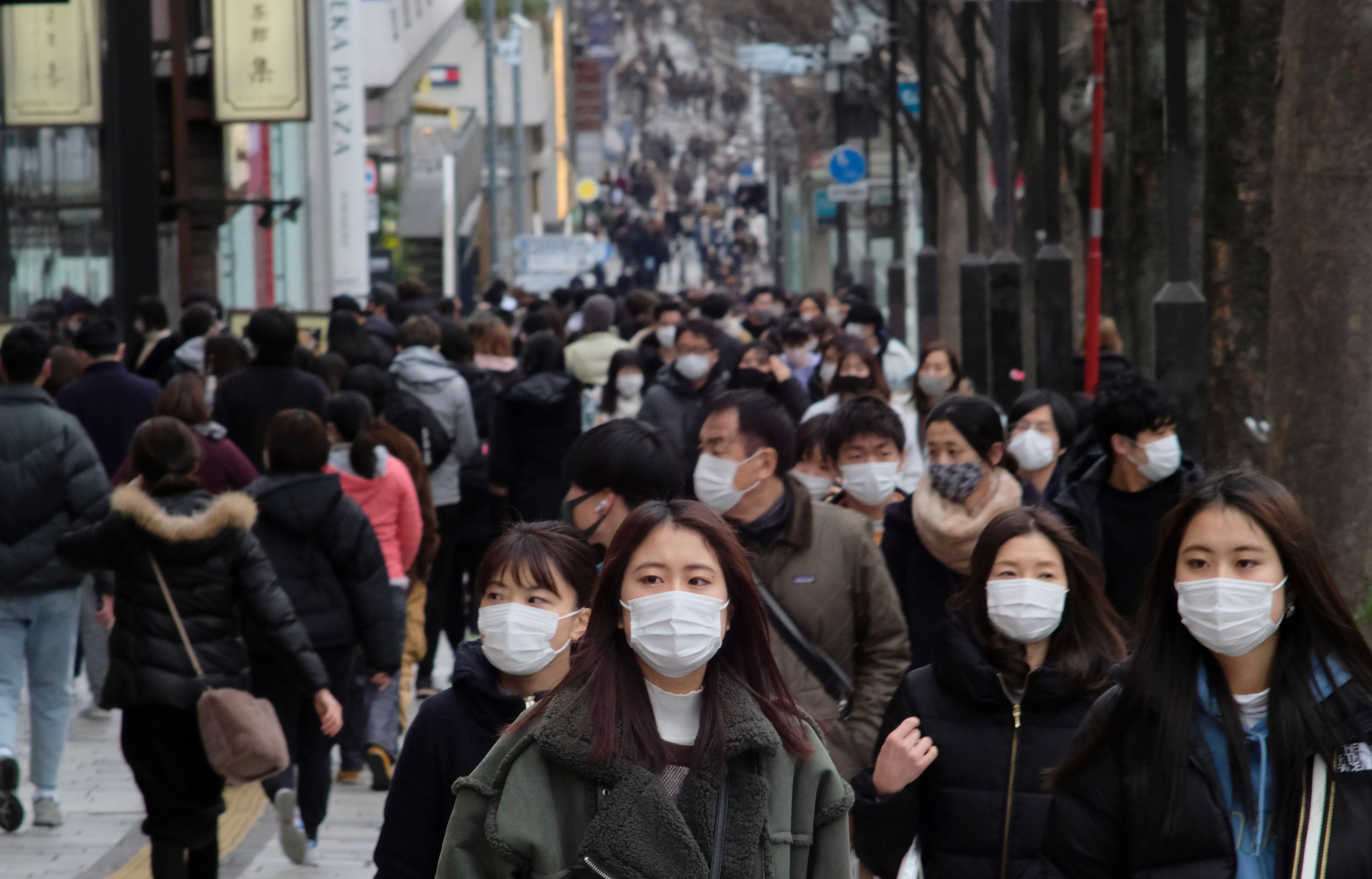Covid-19 patients die at home as hospitals in Japan come under strain
Sign up now: Get ST's newsletters delivered to your inbox

Cases of patients dying at home as they await hospitalisation have emerged in areas from Tokyo to Kyoto and Hiroshima.
PHOTO: AFP
Follow topic:
TOKYO - Japanese Prime Minister Yoshihide Suga vowed on Monday (Jan 18) to exhaust every means to protect overwhelmed hospitals from buckling under the strain of a surge in Covid-19 cases.
Underpaid yet overworked nurses are resigning en masse. Cases of patients dying at home as they await hospitalisation have emerged in areas from Tokyo to Kyoto and Hiroshima. And, as of Sunday, 7,727 Covid-19 patients were waiting for a hospital bed in Tokyo. This was 3.2 times that on Jan 1, and a whopping 13.4 times that of the 577 on Dec 1.
There have been makeshift measures. About 200 pregnant women due to deliver at a Tokyo public hospital were asked to find new doctors after the maternity ward was mobilised for treating those infected.
Nationwide, a Japan Stroke Society survey found that 18 per cent of clinics are refusing to take in emergency stroke victims, prioritising Covid-19 patients.
In a policy speech to outline the agenda for the 150-day Diet session that opened on Monday, Mr Suga stressed the need to safeguard the medical system and promised to deploy medics from the Self-Defence Forces where necessary.
"With the cooperation of the people, I will stand on the front lines of this battle and I am determined to overcome the difficult situation," he said.
Mr Suga's agenda was - expectedly - dominated by Covid-19, though the speech was scant on new ideas on how precisely he intends to fight the twin threats of a rapidly-spreading lethal virus and the socioeconomic impact as seen in soaring suicides, bankruptcies, and domestic violence and child abuse cases.
One priority was the Olympic Games, which he said he was determined to hold as planned in July as "proof that humankind has overcome the coronavirus".
Mr Suga also said he is eyeing legal revisions to punish non-compliance by Covid-19 patients who refuse to be hospitalised, and businesses who disregard requests to shorten operating hours.
Hours after the speech, Mr Suga appointed regulatory reform minister Taro Kono as minister-in-charge of ensuring the smooth distribution of vaccines, saying: "Vaccines are the key for infection control. We will start by late February, as far as possible."
But what may yet complicate Mr Suga's best efforts is evidence on Monday of community spread of the more transmissible British variant, with three local cases in Shizuoka. None of them had recent travel history, nor known contact with a Covid-19 patient.
A state of emergency is ongoing in 11 prefectures - Tokyo, Chiba, Kanagawa, Saitama, Tochigi, Aichi, Gifu, Kyoto, Osaka, Hyogo and Fukuoka - until Feb 7.
Mr Suga on Monday again apologised for the limits imposed on people, saying it was necessary to bring infections under control and promising to lift the decree earlier if possible.
But a blunted state of emergency has, on the surface, softened its impact. Although eateries and bars have been asked to close by 8pm, there are no enforced business closures, and foot traffic in key hubs has hardly fallen at all during the day.
Mr Suga's Cabinet approval has likewise plunged sharply, with support at 39 per cent and disapproval at 49 per cent in a poll last weekend by the pro-government Yomiuri Shimbun. A majority felt that the emergency was insufficient, and should be expanded.
At least five prefectures - Ibaraki, Mie, Miyazaki, Kumamoto and Okinawa - are planning, or have issued, their own emergency decrees independent of the national government.
On Monday, there were at least 4,904 Covid-19 cases nationwide, including 1,204 infections in Tokyo, 957 in Kanagawa and 431 in Osaka. Those in serious condition rose to a new high of 973, while 58 people died.

